Did you know that many children with developmental delays in emotional, language, motor and social skills are not identified at very young age (3-5 years)? There are many factors that are leading to major complications among children such as:
- Feelings of lack of self-worth
- Anxiety
- Attention problems
- Developmental delays and problems associated with it
- General feeling of lack of success
All the Major Factors
There are lots of factors that play a pivotal role in all these problems. It starts with developmental problems and one of the major contributing factors to the developmental problem is our ‘back to sleep’ program. It is obviously good for the SIDS (Sudden infant death syndrome). But the thing is that we have to counteract all that time on the back with tummy time.
For good development, children need as much time on their tummy during the day that develops all their neck muscles, back muscles, and hand muscles. It is highly important because it affects their vision. As a matter of fact, it affects everything.
Another contributing factor are baby carriers (I call them baby buckets). In baby buckets, babies are basically just lying back with their eyes up and they are not using their trunk.
This means that there is less human interaction because their eyes are not looking at faces. They are not using their muscles because they are just sedentary in their carriers. Therefore, it is important to get the kids up, have them on your hip or wear your baby, so that they can feel the natural movements.
It is best because this way kids are developing their neck, trunk, eyes, and different other muscles in the body.
Now that the child has grown up a little bit, his/her next phase starts. I am really concerned how much we are pushing academics at kids at very young age. I recently had a mom crying in my clinic because her preschooler didn’t know how to form every single letter. And it is utterly absurd. It is because developmentally you don’t have the eye-hand coordination to form an angled line until you are 5 or 6 years old. Therefore, preschoolers need to be doing much more gross motor movements such as painting on easels, using their whole arm, pretend play and other activities that lay down the foundation for academic learning.
Academics are being pushed at a much earlier age now. If you look at kindergarten class, it looks more like first or second grade class. It is imperative to understand that while some children can learn to read and write at an early age, there are many others who can’t. Even the ones that can, they are not developing other skills that they need for a good solid foundation for when the academics get even harder. And their social skills are not developing either. This means that children are not being allowed to play much and it is completely neglected that children learn through playing. It is actually really heartbreaking to see how much learning opportunities are neglected just because we are not letting them play.
In general, we have just a lot more sedentary lifestyle. Screen time is a huge problem. For example, in a restaurant, children should be learning from their role models, by looking at their parents and by observing how they interact, but they are not doing any of that. Instead, children are on their phones, looking down and not learning from watching their parents. There are so many concerns for parents. Children are not moving as much and one has to realize that if you are not moving, you are not developing your muscles that you need for a solid foundation. On top of all this, you are not developing your sensory systems and this means that you don’t know where your body is in space. The vast majority of children that we serve at ‘Ohana OT have very weak core strength. They have strong arms and legs but the weak core which causes them to not be able to sit still and be always running around. It is because it takes more strength to be still. Most of the children we evaluate don’t really have a good sense of where their body is in space because the sensation in their muscles and joints is not matured. For academics, you really need a very strong sense of where your body is in space. This includes being able to write, to be able to sit, to be able to learn and to be able to decipher body languages.
The increase of homework isn’t helping much because children need to come home and move – not come home and sit to do more work. And the eyes are not fully mature until you’re 7 years old. Some countries don’t even start reading instructions until 7. I firmly believe another contributing factor is that we are so much more concerned about the safety of our children. Back in the old days, children would go out and ride their bicycles for hours. I am not saying that don’t be cautious, but we need to have situations where children can move that much without so many limitations.
A couple of other points that I find interesting is that since our back to sleep program, our Movement Assessment of Infants developmental norms have changed. The children are actually developing milestones later and like I said, we need to counteract that with a lot of tummy time. Now, crawling is taken off of the key developmental milestones for physicians to check and this is just crazy. In my opinion, it is an essential thing that cannot be neglected. And yes, some kids start walking early but it is still beneficial even for those kids to do a lot of exploration, build forts, and crawl through tunnels. Crawling works on so many skills for the body that it is still a really important part of the development.
And Then It Backfires
So, in a nutshell, what I see happening is that the children’s physical being is less mature. Hence, it results in a weaker foundation. The dilemma is that much higher social and academic demands are being put on that weak foundation which causes it all to come crumbling down. As a result, lots of different complications start to appear such as Anxiety, Behavioral problems, Attention problems, Hyperactivity problems, and the list goes on and on.
What You Need To Do
There is no better answer than letting your children play and explore things on their own. All in all, we need to help our kids move more and develop their skills as a result of activity and interaction with others. There is no need to put so many academic demands on your children so young. Make their childhood fun and energetic and rest assured there won’t be complications such as childhood stress, anxiety, and developmental delays.
Mary Kostka is a Pediatric Occupational Therapist specializing in Sensory Processing Disorder at her private practice, ‘Ohana Occupational Therapy, LLC, in Wenatchee and Leavenworth Washington, USA
OhanaOt.com
‘Ohana Occupational Therapy, LLC
1139 N Princeton Suite B
Wenatchee, WA 98801
Ph: 509-888-7435
Fax: 509-888-7674
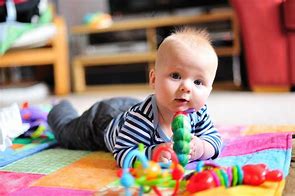

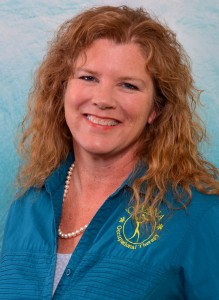
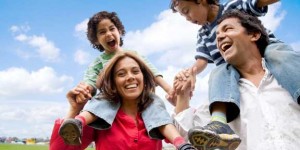


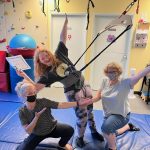
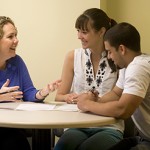
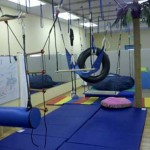
Leave a Reply
You must be logged in to post a comment.